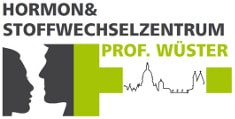Thyroid: Examine nodules at a specialist in Darmstadt
Enlarged thyroid is usually harmless – those affected in Darmstadt should still see a doctor
DARMSTADT – Up to 25 per cent of all adults have nodules or cysts in their thyroid gland. These do not normally cause any immediate symptoms. Only when they become very large can they constrict the windpipe or oesophagus and cause a feeling of pressure in the throat. Prof. Dr med. Dr h.c. Christian Wüster is head of the Hormone and Metabolism Centre in Mainz, which is also a point of contact for patients from Darmstadt. He explains: ‘The most common cause of thyroid nodules is iodine deficiency. However, the use of iodised table salt has significantly improved the iodine supply in the population, meaning that we now see thyroid nodules less frequently than in previous years.’
Specialist for Darmstadt: Nodules in the thyroid gland are almost always benign
An enlarged thyroid gland can be palpated by the doctor. Better still, they can recognise it on ultrasound. In the practice of thyroid specialist Prof Dr Wüster, a so-called scintigraphy is also used. This involves administering a low-level radioactive medication. A special camera then visualises nodules and allows conclusions to be drawn about their condition.
Doctors differentiate between so-called ‘hot’ and ‘cold’ nodules. ‘Hot nodules’ are always benign, but can be associated with hyperthyroidism. ‘This means that the thyroid gland releases too many hormones in an uncontrolled manner,’ explains specialist Prof Dr Wüster. ‘Cold nodules’, on the other hand, do not cause a functional disorder. In very rare cases, they can be malignant. ‘However, this only applies to around two per cent of all cold nodules,’ emphasises the thyroid specialist.
Treatment of enlarged thyroid glands by a specialist for Darmstadt
And what to do if the doctor finds thyroid nodules? ‘Surgery is only necessary if the lump is malignant or causes discomfort due to its size,’ the expert reassures. In most cases, the patient does not need to be operated on. Benign nodules can also be treated with medication using a combination of iodine and thyroid hormones. If the patient has no symptoms, Dr Wüster says that waiting and observing are also options.

